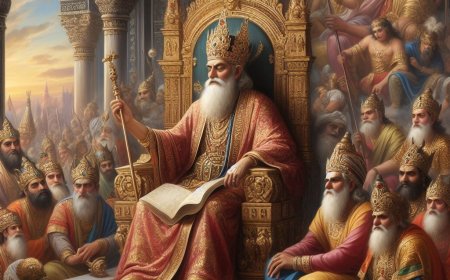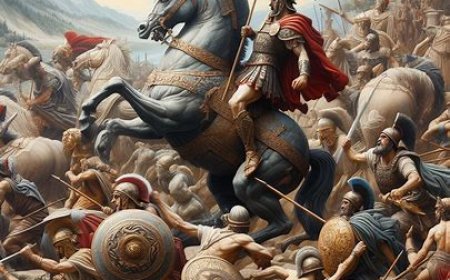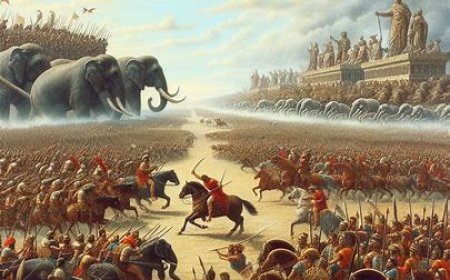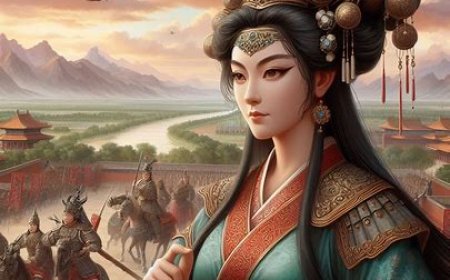Cleopatra: Strategist of Power and Diplomacy
Despite eventual defeat, Cleopatra remains a symbol of strength, beauty, and wisdom in popular culture. Her tragic life story, culminating in a suicide involving a cobra, creates a dramatic and romanticized image associated with her name. Her cultural legacy endures through various works of art, literature, and theater, making her one of the most captivating and timeless figures in world history.
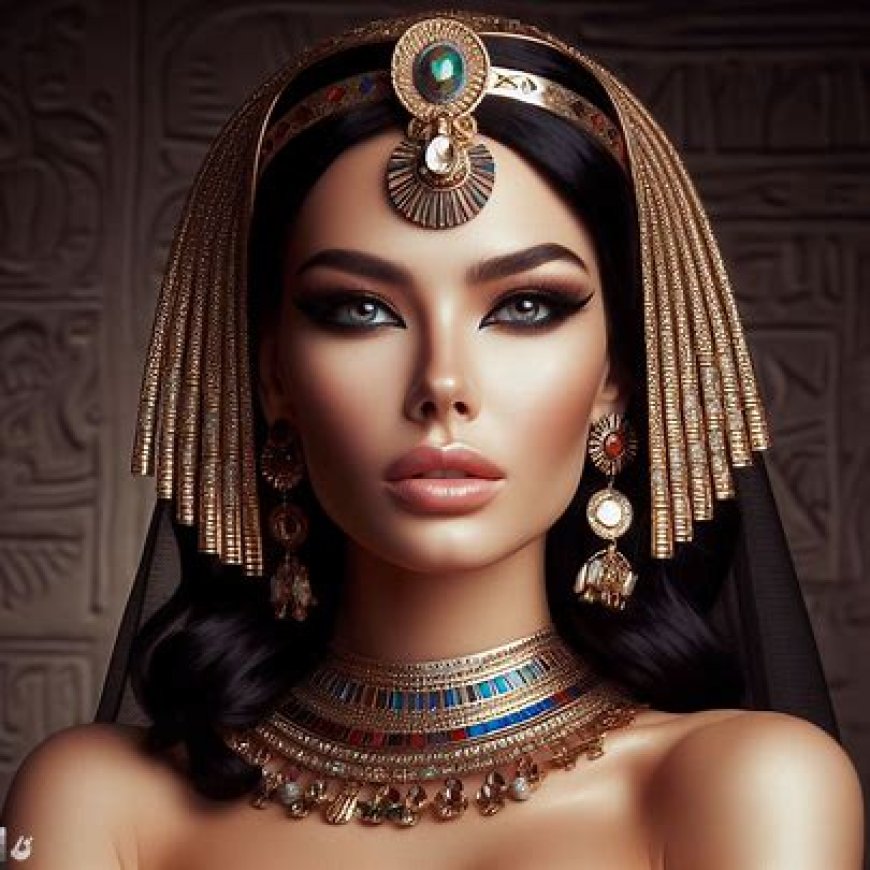
Cleopatra VII Thea Philopator, affectionately known as Cleopatra, is a figure who attained fame through her role as the ruler of Egypt during the Ancient Roman period. Born around 69 BC, Cleopatra belonged to the Ptolemaic Dynasty, which governed Egypt following the conquest of Alexander the Great. Cleopatra's uniqueness lay not only in her beauty but also in her extraordinary intelligence. She was known as a ruler fluent in several languages, including Greek and Latin, enabling her to conduct diplomacy with Roman leaders.
Cleopatra played a significant role in history through her relationships with two prominent Roman figures: Julius Caesar and Marcus Antonius. Her relationship with Caesar secured her throne, while her involvement with Antonius formed a political alliance that influenced major events in Rome. The Battle of Actium in 31 BC, a decisive moment for the empire, witnessed the defeat of Cleopatra and Antonius's forces by Octavian (Emperor Augustus). The deaths of Cleopatra and Antonius were followed by the annexation of Egypt into the Roman Empire.
Cleopatra was a masterful politician who leveraged her intelligence to maintain political stability in Egypt during her reign. Her expertise in diplomacy and political tactics made her an exceptionally effective leader, and several aspects highlight her prowess in the field of politics:
1. Relations with Roman Leaders
Cleopatra established relationships with influential Roman figures, such as Julius Caesar and Marcus Antonius. These relationships were not just personal connections but also diplomatic tools used to safeguard Egypt's interests. Through these connections, she successfully preserved her rule and upheld Egypt's independence.
2. Multilingualism and Higher Education
Cleopatra's proficiency in various languages and her extensive knowledge demonstrated a high level of education. Her ability to communicate with Roman leaders in their own languages gave her an advantage in political negotiations and diplomacy.
3. Internal Political Management
Despite facing domestic political rivalries and intrigues, Cleopatra successfully maintained control and stability in Egypt. Her wise political decisions helped efficiently utilize Egypt's resources and strengths.
4. Influence on Major Roman Events
Cleopatra's role in significant events like the Roman Civil War and the Battle of Actium showcased her intelligence in understanding geopolitical dynamics of the time. Her involvement in Roman politics had a substantial impact on the power dynamics in the region.
5. Political and Cultural Legacy
Despite her defeat in the Battle of Actium marking the end of her rule, Cleopatra is remembered as one of the most influential female leaders in history. Her legacy extends beyond political influence to cultural contributions and her impact on art, literature, and popular culture.
With her ability to adapt to political changes and establish connections with influential parties, Cleopatra can be considered a brilliant political figure of her time.
Despite eventual defeat, Cleopatra remains a symbol of strength, beauty, and wisdom in popular culture. Her tragic life story, culminating in a suicide involving a cobra, creates a dramatic and romanticized image associated with her name. Her cultural legacy endures through various works of art, literature, and theater, making her one of the most captivating and timeless figures in world history.
(source: chatgpt)
What's Your Reaction?












